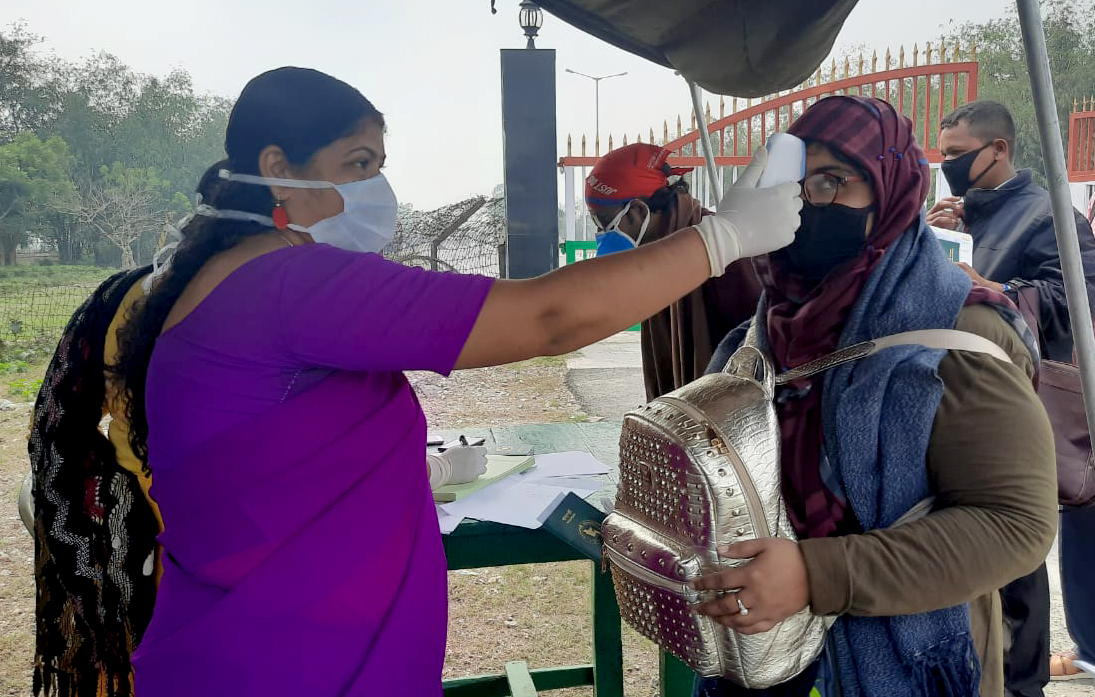Punjab to screen wheat farmers at mandis, makes masks mandatory

- Country:
- India
Wheat growers will be checked for influenza-like symptoms and they will have to wear masks when they bring crop to mandis for procurement, set to start from April 15, officials said here. “Farmers and labourers will be checked for influenza like symptoms, masks (including cloth masks) will be made compulsory and multiple hand washing arrangements shall be set up in each Mandi. All trucks or harvesters going from one village to the others will be required to be cleaned regularly,” Punjab health secretary Anurag Aggarwal said in a statement here.
He said that guidelines were being prepared to ensure that the mandis were protected from COVID-19. The state government has already decided to start wheat procurement from April 15 and it will be staggered in such a manner so as to avoid overcrowding at any place.
The additional chief secretary Vishwajit Khanna said in order to maintain social distance, ground space at the mandis is being divided into 30'x30' areas for heaps of 50 quintals each. "Every day, one-third of the farmers will be issued coupons, with holograms and the number of the trailer allowed to bring in the produce on that day. More coupons will only be issued after the earlier produce is lifted,” said Khanna.
The government has already prohibited night harvesting, with harvesters allowed to be operational only from 6 am to 7 pm. Police personnel will be deputed at all the centres to maintain order, said Director General of Police Dinkar Gupta, adding that adequate force would be deployed and nodal officers will be appointed for proper coordination.
The state government has set up a 30-member control room at the mandi board for coordination and providing logistic support during the ensuing wheat harvesting and marketing season, amid the COVID-19 clampdown. Chief Minister Amarinder Singh on Tuesday again reviewed the arrangements for the Rabi operations at a video conference with top officials from various departments, including Food & Civil Supplies, Agriculture, Police, among others, said a government release here. The CM ordered the Food and Agriculture departments to immediately come out with Standard Operating Procedures (SOPs) for the mandis and the purchase centres.
He directed the departments to scale up the number of purchasing centres to 4,000, from the current 3,761, which is already double that of last year. While 1,820 mandis had been notified so far, the remaining were expected to be notified later.
The Chief Minister also wrote to his West Bengal counterpart Mamata Banerjee, seeking her personal intervention to revive manufacturing and loading at the jute mills in her state against the pending indents for gunny bales placed by the government of Punjab. This was essential given the emergent situation, to enable smooth procurement of wheat for Central Pool for onward distribution in the country under National Food Security Act and other Public welfare schemes, he said.
The Chief Minister said indents had been placed for 3.40 lakh jute bales from December 2019 to March 2020, and approximately Rs 1,000 crore had been transferred in advance in the escrow account of Jute Commissioner of India, Kolkata. As per the status available on the Jute Smart Portal of the JCI, out of 3.40 lakh bales indented by Punjab, 2.46 lakh bales had been cleared in inspection, and 2.30 lakh bales had been dispatched till date. Another 10,000 bales were ready with the mills for inspections, but the nationwide lockdown disrupted the entire supply chain, he observed.
Singh pointed out in his letter that the Union Ministry of Home Affairs had already provided exemption from lockdown for the manufacturing units of packaging of food items, as well as agencies engaged in procurement of agriculture products, including MSP operations. He further noted that in Punjab too, such units have been allowed to run their operations while observing the prescribed health safeguards. Meanwhile, to further check overcrowding at any place during the procurement operations, the chief minister directed that Arhtiyas should make their own individual arrangements for water and food rations, and no water coolers should be allowed to be set up.
The chief minister was informed during the video conference that there was no shortage of labour, with 14.2 lakh workers available to join the operations. Details of MGNREGA workers would be shared with the Arhtiyas, he was further told.
(This story has not been edited by Devdiscourse staff and is auto-generated from a syndicated feed.)
ALSO READ
India's stature grew globally as it helped other countries during Covid: Mandaviya
Scientists warn of lethal bird flu pandemic, says could be '100 times worse' than COVID
Modi govt was 'dragged into' providing free COVID-19 vaccinations by oppn: Cong
Thunderstorm forecast for West Bengal amid sweltering heat
2 farmers killed in lightning strikes in West Bengal










